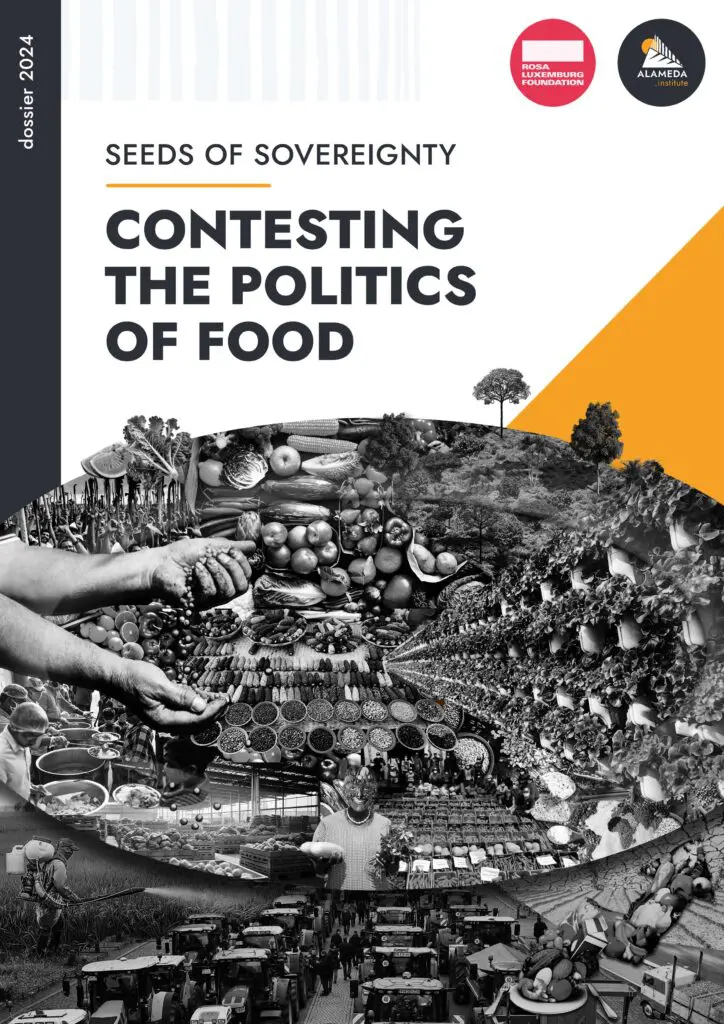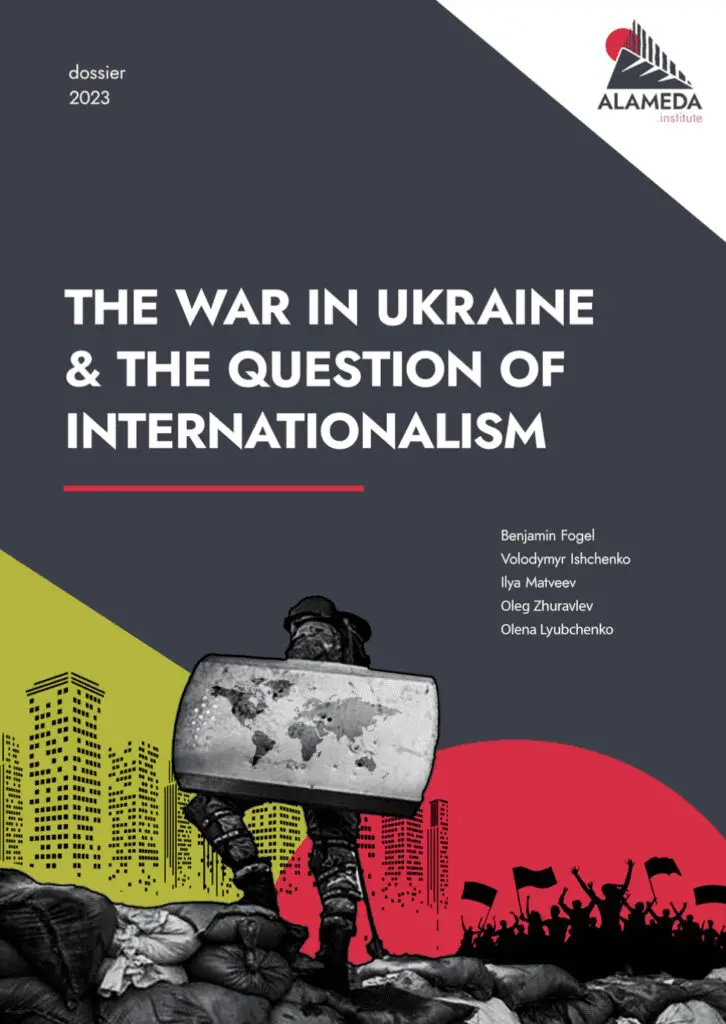I / Internationalism against catastrophe! A response to the war in Ukraine
Just over a year ago, Russia launched a full-scale invasion of its neighbouring state Ukraine, following eight years of asymmetric warfare. Since then, not only have perhaps hundreds of thousands died, but our world seems to have changed dramatically.
The ensuing war has shaken previous assumptions about the durability of global order. Through the long nineteen-nineties, the so-called ‘new wars’ tended to reinforce US hegemony, being treated as humanitarian crises that required urgent response through aid or even foreign military intervention. However, over the last decade-and-a-half, wars on the margins of the West’s immediate sphere of influence have increasingly served as sites of contestation to the existing order. Russia’s invasion of Ukraine may confirm a transition that was already in course. But despite mistaken hopes – often reflective of a residual Third-Worldism – that the emerging multipolar order might give birth to a more democratic and just world, this event can be considered another indication of our entry into a time of catastrophe. While, as Samuel Moyn points out in this dossier, the Cold War was ‘staged as a contest of emancipatory and futuristic visions’, those states with renewed pretensions on global power today offer no promises of a brighter future, they merely add actors at the table.
The war in Ukraine, given the nuclear arsenals of NATO and Russia, has once again raised the spectre of nuclear holocaust. But there are now other risks that were not so present during the proxy wars of the twentieth century. More is known today about the environmental impact of war, from its contamination of vital ecosystems to the consequences of its demands on resources. And the global economy is also more vulnerable than it was during much of the Cold War. The process of what can be termed de-development that has been accelerated by the economic fallout of the war should also, as several of the contributors to this dossier argue, be understood as one of its causal factors. The effects of catastrophes that threaten humanity from the horizon already contribute to immediate crises that, in turn, make such catastrophes more likely. A multipolar world order does not necessarily offer an easier way out of the age of catastrophe.
Rather than reviving a spirit of global solidarity and internationalism, responses to the war in Ukraine have often reflected an emboldened chauvinism that defines the West in opposition to Putin’s brand of ‘Asiatic despotism’ and reaffirms the limits of Euro-American community. The suffering of Ukrainians has been mobilised in justification for denial of the rights of other victims of war and disaster, including those arriving in boats on the shores of European countries after perilous journeys. International solidarity extended to Ukrainians must be universal if it is to contribute to addressing the structural problems behind today’s crises.
For these reasons, the need to reinvigorate internationalism has become more urgent. That critical economic and social challenges are international in character became a truism in the high period of neoliberal globalisation, parroted by the executives of big businesses and aid agencies alike. But not only have elite policy agendas failed to create a safer, fairer world; they have also lost popular legitimacy. Scepticism of ‘globalism’ has become a feature of popular protest, even if it is often mobilised by anti-political and right-wing forces denouncing ‘the establishment’. Meanwhile, the influence of working-class internationalism has waned, undermined by the weakening of the labour movement and the related crisis of mass politics across the world.
The war in Ukraine and its implications for internationalism are the focus of this dossier – the first produced by Alameda, a new institute for research aimed at contributing to strategic responses to the catastrophes that cast a shadow over our present. Alameda will promote the collective production of knowledge grounded in contemporary social struggle to help diagnose impasses and inform political strategies for going beyond them, in pursuit of a better world. What, then, are the necessary bases today for an internationalism that can attend to the existential demand for a future?
The war in Ukraine has been unusual in many senses. It has involved a return to conventional military-against-military battles. Indeed, from the limited information available, it is possible to affirm that this is one of the few wars since the First World War in which there have been significantly more military than civilian casualties. The damage, however, is of course not limited to the horrific toll in human life: entire cities have been destroyed, millions displaced, and the basic infrastructure that enables modern economies to function lies in ruins. Then there are the knock-on effects, which include inflation, gas and heating shortages, and increases in the cost of living, far beyond the range of the bomb blasts. If we are indeed living through the end of the end of history, Ukraine is at the centre of the sprawling ruins.
Even before Russia’s invasion, Ukraine was experiencing the consequences of de-development. Since independence, its level of development, as reflected in its industrial output, research capacities, and GDP per capita, has declined significantly. Simply put, Ukraine was a more prosperous country when it first broke away from the Soviet Union, long before the initiation of conflict in 2014. This decline was a product of two decades of failed neoliberal policies, in particular the disastrous shock therapy of the nineteen-nineties, which served to enrich politically connected oligarchs while asset stripping the Ukrainian economy and relegating many Ukrainians to poorly paid service workers or economic migrants seeking a better life in the EU.
This trajectory stands in contrast to the whiggish account of history still embedded in liberal analysis, according to which democracy and free markets inexorably lead to development and progress. Russia, too, finds its economic fortunes declining as a result of the war in Ukraine, but it was already suffering the effects of de-development – effects that can now also be observed in major economies. In countries like the United Kingdom and France, deindustrialisation, rising public debt, and faltering productivity have gone together with increasing precarity of work, falling real wages, and degradation of economic and social rights. Recent strikes and protests should thus come as no surprise. This raises the question: If industrial society gave rise to mass politics, what kind of politics emerges when modernity collapses? For the beginnings of an answer, we might look to popular mobilisations in post-Soviet countries – what Volodymyr Ishchenko and Oleg Zhuravlev, contributors to this dossier, have referred to as deficient Maidan revolutions – and the transformation of civil societies that enabled them.
This question is of relevance here because, on the one hand, as Zhuravlev argues, in his contribution to this dossier, the mobilisation of ordinary people in Russia and Ukraine provoked a ‘counter-politicisation’ of the Russian state and ruling class, who believed it could threaten their power and the sovereignty of Russia. Indeed, the presumption by Russian elites that popular mobilisation is always guided by external forces seeking to undermine the state emerges as a clear theme here. The form that politics takes in the context of de-development generates pressures that contribute to war. On the other hand, this question about the form of politics is of relevance to considerations about the possibility of directing existing political energies towards the development of international solidarity and the coordination of common struggles. Even posing it implies a refusal to separate politics entirely from economics. This dossier does not provide a descriptive account of the violence and destruction wrought upon Ukraine. Nor is it a channel for the cathartic denunciation of injustice and villainy. Rather, in keeping with the intention for Alameda dossiers, it opens out from conjunctural analysis to strategic questions.
The first section – included in print, for the occasion of Alameda’s launch – sets up a debate on the tricky question of causality, moving beyond the all-too-common reductionist explanations that focus only on Putin’s psyche or on NATO expansion. What drove Russia to launch a full-scale invasion of Ukraine? Volodymyr Ishchenko provides the first answer, in an essay on the class politics behind the war. Three other regional specialists – Ilya Matveev, Oleg Zhuravlev, and Olena Lyubchenko – offer critical responses, contesting elements of Ishchenko’s argument, and building on others.
Prioritising discussion of the implications of the war for great-power rivalry, Western media outlets have generally relegated the analysis of those with specialist knowledge of social formation in Ukraine and Russia. By centering such perspectives here, we propose not only that it can provide the most accurate and useful explanation of the war’s causes, but also that it can contribute to a deeper understanding of broader processes of change. As the late German philosopher Robert Kurz predicted would happen, the social and economic transformation of post-Soviet countries has shown the West its future; as de-development takes hold in Europe and North America, it is even perhaps apt to speak of the ‘Ukrainisation’ of the West. The war in Ukraine does not occur apart from the forces that drive history; it is a reflection of them. We have therefore invited a number of public intellectuals to offer reflections on the debate, drawing out themes of universal relevance, related to challenges posed by contemporary capitalism. (These reflections, together with the second and third sections of the dossier, will only be published online).
In the second section of the dossier, Daniel Bessner considers what the war means for US empire and, more generally, for the international order over which the US has presided. The final section, then, directly addresses the problem of internationalism: What does it mean to be an internationalist today, when the conditions that compelled previous internationalist movements no longer exist? Here, responses are provided by three young intellectuals from the Global South, Sabrina Fernandes, Nadia Bou Ali, and William Shoki. Samuel Moyn, meanwhile, discusses the possible contribution of humanitarian action to a new progressive internationalism. This dossier is intended as contributing to a longer strategic dialogue about such questions, one that can ultimately support efforts to find a way beyond the impasse posed by catastrophe.
RELATED ARTICLES
XII / In solidarity with Ukraine: Reflections on war and death
XI / Sovereignty and the polycrisis
IX / Humanitarianism after Unipolarity
VII / Theses on the Situation in Ukraine
IV / Counter(revolutionary) war against society
II / The class conflict behind Russia’s war




